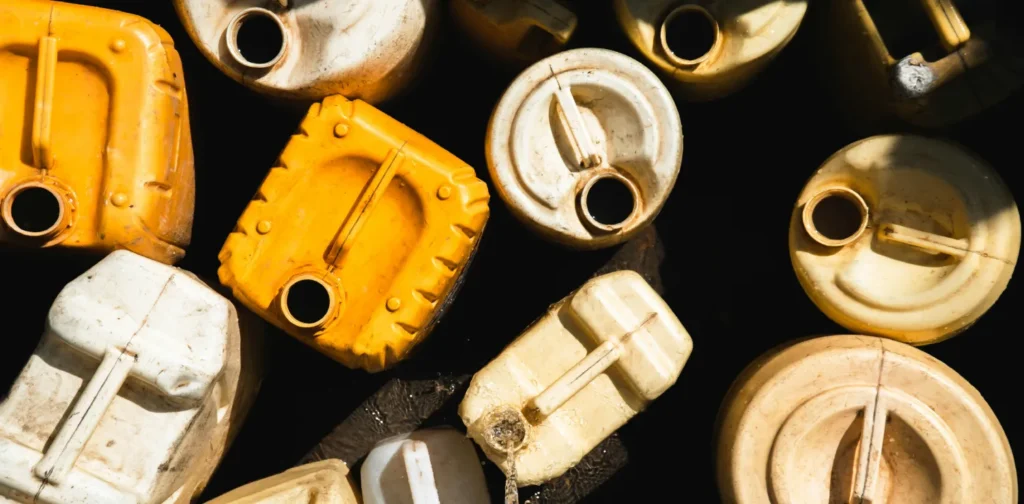What Is the State of the Global Water Crisis?

Photo: Kyle Winkle on Unsplash.
We depend on water for survival. Though water makes up most of the planet’s surface, water shortages occur in many parts of the world. What is the state of the global water crisis, and what are some factors causing it?
Water Crisis Issue
The demand for freshwater has been growing due to socio-economic development and changes in consumption patterns. Agriculture accounts for 70% of the usage, followed by industrial use (20%) and domestic use (10%). In other words, water demand increases as the economic sector grows and the population expands.
However, at the same time, roughly half of the world’s population is experiencing water scarcity. The UN World Water Development Report 2024 states that a quarter of the global population faces extremely high levels of water stress, where they use over 80% of the annual renewable freshwater supply. The lack of water access can result in multiple health issues due to a lack of sanitation, hinder agricultural production, and even disrupt a country’s peace and prosperity.
Then, what does this crisis look like around the world?
Diverse Conditions and Factors Globally
Many factors can lead to a water crisis. One of the primary reasons is climate change, which can lead to unusual weather patterns. In Greece, for instance, many islands are reportedly running low on water due to prolonged low rainfalls. In Naxos, one of the Greek islands, the rain-fed reservoirs only hold a third of what they had in 2023. Authorities predicted that the tourist season would put additional strain on the water supply due to soaring demand.
On the other hand, rapid urbanization and industrialization, the tourism industry, and weak infrastructure governance are the primary reasons for the ongoing water crisis in the Caribbean islands. The region has experienced various forms of water stress in the last five years, such as the drought in Trinidad and water restrictions in Jamaica. Hurricanes and other extreme weather related to climate change further exacerbate the lack of water access in the region.
Additionally, water infrastructure is one of the first things impacted during conflicts, such as the ones happening in Sudan. In Southern Gaza, Palestine, UNICEF estimates that displaced children can only access 1.5 to 2 liters of water daily, far below the humanitarian standard of 15 liters. As a result, children suffer from dehydration, diarrhea, and malnutrition. Lack of water for sanitation also increases the risk of waterborne diseases like cholera. Addressing these factors to tackle the water crisis will require systemic intervention and collaboration across stakeholders.
Calls for Strong Commitments and Clear Actions
Just a few years short of the 2030 Agenda, the targets for Goal 6 of the SDGs are not on track. This calls for strong commitments and clear action plans from governments, organizations, and stakeholders to end the water crisis globally. Improving water management at national and local levels and integrating climate actions into water-related policies and regulations will be crucial for governments. Meanwhile, organizations must also implement assistance projects to ensure access to clean water for all.
Editor: Nazalea Kusuma

Co-create positive impact for people and the planet.
Amidst today’s increasingly complex global challenges, equipping yourself, team, and communities with interdisciplinary and cross-sectoral insights on sustainability-related issues and sustainable development is no longer optional — it is a strategic necessity to stay ahead and stay relevant.

Kresentia Madina
Madina is the Assistant Manager of Stakeholder Engagement at Green Network Asia. She holds a bachelor’s degree in English Studies from Universitas Indonesia. As part of the GNA In-House Team, she supports the organization's multi-stakeholder engagement across international organizations, governments, businesses, civil society, and grassroots communities through digital publications, events, capacity building, and research.


 Indian Gig Workers Push Back Against 10-Minute Delivery Service Strain
Indian Gig Workers Push Back Against 10-Minute Delivery Service Strain  Call for Governance: Grassroots Initiatives Look to Scale Efforts to Conserve Depleting Groundwater
Call for Governance: Grassroots Initiatives Look to Scale Efforts to Conserve Depleting Groundwater  Integrating Environment, Climate Change, and Sustainability Issues into Education Systems
Integrating Environment, Climate Change, and Sustainability Issues into Education Systems  Finally Enforced: Understanding the UN High Seas Treaty
Finally Enforced: Understanding the UN High Seas Treaty  Risks and Opportunities of Submarine Communication Cables for Sustainable Development
Risks and Opportunities of Submarine Communication Cables for Sustainable Development  Rising Attacks and Violence Against Land and Environmental Defenders
Rising Attacks and Violence Against Land and Environmental Defenders